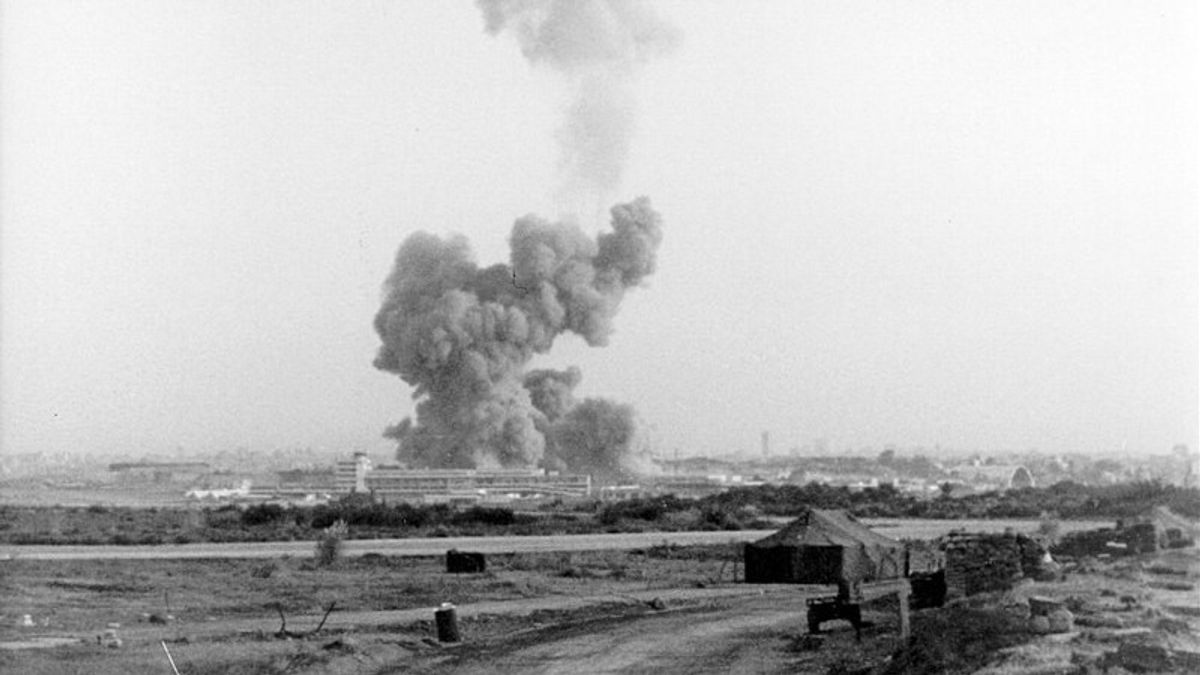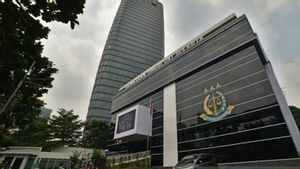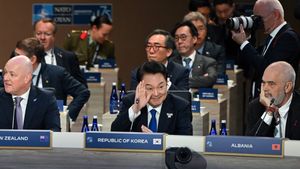JAKARTA - On October 23, 1983, a suicide bomber drove a truck filled with two thousand pounds of explosives to the US Marine Corps (US) barracks at Beirut International Airport. Minutes after the first bomb exploded, the second was carried out in the basement of the French paratroopers' barracks.
The first explosion killed 220 marines, 18 sailors, and three soldiers. Meanwhile, the second bombing killed 58 people.
In 1975, a bloody civil war erupted in Lebanon, with Palestinian Muslim and leftist guerrillas fighting the Christian Phalange Party militias, the Maronite Christian community and other groups. Over the next several years, the intervention of Syria, Israel, and the United Nations failed to resolve the factional fighting.
Then, on August 20, 1982, multinational forces, including eight hundred US Marines, were ordered to Beirut to help coordinate the withdrawal of Palestinian troops. The Marines who are in Beirut are part of a multinational peacekeeping force trying to broker a ceasefire between the Christian and Muslim Lebanese factions.
In 1981, US troops had overseen the withdrawal of the Palestine Liberation Organization (PLO) from Beirut and then withdrew. They returned to Beirut the following year, after the massacre of Palestinian refugees by Christian militias.
The massacre claimed the lives of nearly a thousand unarmed Palestinian refugees. Quoting History, Friday, October 23, as many as eight hundred peacekeeping marines moved to the Israeli Army barracks near the airport, a fort with walls as thick as two feet that seemed to hold anything back.
In fact, after a van bomb killed 46 people at the US Embassy in April, US forces maintained their non-self-defense attitude. Their fences were relatively unreinforced and their weapons for guarding them were dismantled.
At around 6.20am on 23 October 1983, a yellow Mercedes truck broke through the barbed wire fences around the barracks compound and past two checkpoints. The car sped straight into the barracks and exploded.
Witnesses said that the force of the explosion caused the entire building to collapse into thick clouds. FBI investigators say it was the largest non-nuclear explosion since World War II and certainly the most powerful car bomb ever detonated.
Reagan's AngerAfter the bombings, US President Ronald Reagan expressed outrage at the "despicable act" and vowed that US troops would stay in Beirut until peace could be achieved. But on the other hand, President Reagan drew up plans to bomb Hezbollah's training camp in Baalbek, Lebanon, where intelligence agents thought the barracks bombing was planned.
However, Defense Minister Caspar Weinberger canceled the mission. This is because he does not want the US to damage relations with oil-producing Arab countries.
Serious questions also arise about the quality of security in the war-torn American sector in Beirut. US peacekeepers occupied an open area near the airport, but for political reasons the marine commanders were not allowed to maintain a completely secure perimeter prior to the attack.
Four months after the explosion, President Reagan announced the end of the US role in peacekeeping forces. On February 26, 1984, the main marines left Lebanon, leaving only a small contingent to guard the US embassy in Beirut.
The English, Chinese, Japanese, Arabic, and French versions are automatically generated by the AI. So there may still be inaccuracies in translating, please always see Indonesian as our main language. (system supported by DigitalSiber.id)









